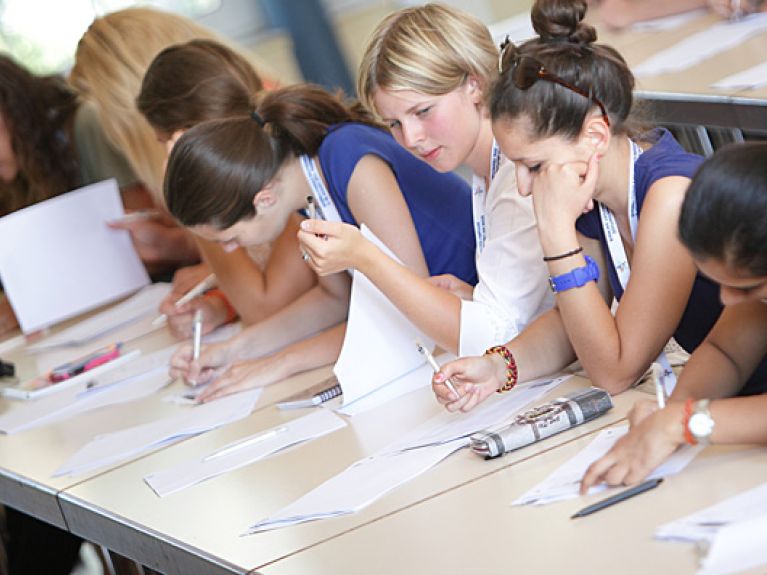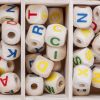International German Olympics
Lots of cultural interchange, a little rivalry: a visit to the International German Olympics in Frankfurt.

Brigitte Westermeyer says “Abenteuer” (adventure) is her favourite German word. A few days ago, the 17-year-old boarded a plane near her home in South Africa and flew to Germany for the first time in her life. Now she is sitting in the dining room of the youth hostel in Frankfurt with 16-year-old Lebogang Mphahlete sitting opposite. Together, they make up the South African team at the International German Olympics (IDO).
“Of course, I want to win,” says Lebogang and smiles, “otherwise I wouldn’t be here.” Brigitte also feels well prepared with her current knowledge of German, even if she sometimes finds the three definite articles – der, die and das – a bit of a headache. But the two young women have not only come here because they want to compete with others on German grammar. The two-week competition in Frankfurt is also a chance for them to make contacts. “Getting to know new people, new cultures and new traditions,” is Lebogang’s plan for the next few days. And national barriers have indeed long disappeared. It is as loud and lively as any class outing while the 100 participants from 50 countries have their lunch.
Aimée Torre Brons of the Goethe-Institut is pleased to see that. “The International German Olympics is not only about language, it’s also about intercultural competence.” That’s why the competition includes lots of group assignments in international teams. There are various things the organisers want to see: Do the participants support one another, show sensitivity and tolerance? How much appreciation and understanding do they show when they communicate? Naturally, they would like to see top linguistic achievement, too, but the IDO uses the term “Olympic” in its name primarily because of its ideal of promoting international understanding. In the end, alongside the winners at three different learning levels, one of the participants will also win a fairness prize.
“I would like to study here”
Bringing people together and promoting the German language are just two of many goals that the Goethe-Institut and the International German Teachers’ Association (IDV) are pursuing with the IDO. Two tables away from Brigitte and Lebogang sits Dimitris Charalambous. The 16-year-old from Cyprus began learning German two years ago. “I would like to study here; I want to be a doctor.” Like him, many of the participants are open for a future in Germany. Later in the week, a tour of the campus of Frankfurt’s Goethe University is planned.
After lunch, however, Dimitris has to start work on the next assignment. Sheets of coloured paper, scissors and glue sticks are already lying ready in the Skyline-Deck seminar room on the top floor of the youth hostel. The 15 assembled learners of German have to design a wall newspaper with an article of at least 200 words and illustrations. They can choose their own subject, but it has to have something to do with People in Frankfurt, Nature and the Environment or Culture and Art, explains the tutor. “Every idea is welcome.”
International German Olympics (IDO) from 3 to 16 August in Frankfurt

